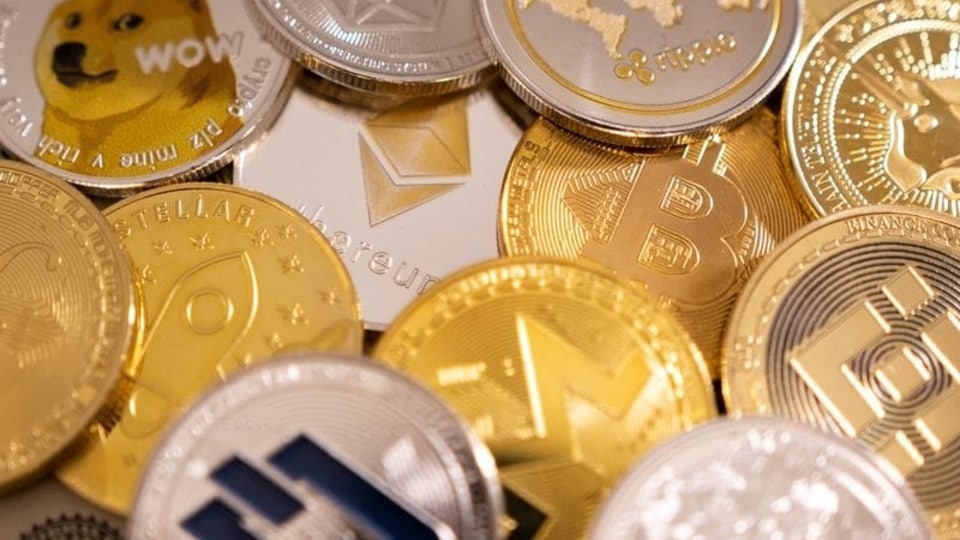LOSS $1.35 TRILLION! But the Cryptocurrency price crash strengthens the case for crypto!
Cryptocurrency prices are tumbling. By one account, crypto assets have lost about $1.35 tn since November, with some falling by 80%.


Cryptocurrency prices are tumbling. By one account, crypto assets have lost about $1.35 trillion globally since November, with some falling in price by 80% or more. Many investors feel a real pinch. The good news is that the global economy, or for that matter American society, is not poorer. And thus there need not be much of an economic response to adjust to these new prices. (The flipside is that if crypto prices see another steep increase, there won't be much cause to celebrate.)
Over time I have moved from crypto-skeptical to what I call crypto-hopeful. So this is a good moment to assess how radically lower crypto prices will affect how socially valuable crypto will prove to be.
One possibility is that crypto prices, even at current levels, are mostly a bubble and that crypto won't do much that is useful. In that case lower crypto prices mean less purchasing power for crypto holders, but that doesn't translate into less wealth for the economy as a whole. People who don't own much crypto will, over the longer run, have greater command over goods and services. The crypto holders who were bidding against them will, over time, spend less. Purchasing power will shift to the non-crypto holders.
In these scenarios the psychological losses are felt before the psychological gains. Most crypto holders are unhappy right now, but few non-holders are celebrating their (modest) boost in purchasing power. Over time, however, these non-crypto-holders will be able to buy more at better prices than they had been expecting. What the crypto holders lose will be roughly about what the non-crypto holders gain.
Consider another scenario — one where crypto is poised to provide a lot of useful services. Perhaps crypto assets will underpin useful savings and lending through DeFi, execute online smart contracts at low cost, and provide useful currencies and stores of value for the pending metaverse.
Most of these services are not yet available, at least not in a way that they will be eventually. So if a lower crypto price is a signal that these services won't be as valuable as expected, that means society will be somewhat less wealthy in the future. This doesn't much harm living standards today.
That is a worst-case scenario that I think is unlikely, even granted that the crypto revolution succeeds. Instead, it is more likely that the long-term value of crypto is robust and that the current crypto price declines are driven by risk and liquidity issues.
The plunge in crypto prices doesn't seem to be the result of a newfound understanding that crypto institutions are irrevocably flawed. Instead it is due to an unpleasant mix of persistent inflation, higher real interest rates, lower equity prices for the major technology companies and geopolitical fears. All of that is bad news — but not necessarily bad news about crypto. The same crypto fundamentals are in place. Higher real interest rates make the future less valuable in present discounted value terms, but crypto has no special place in that misfortune.
The bottom line is that even a large fall in crypto prices won't create a lot of social worries. The Federal Reserve doesn't have to panic, and the regulators don't have to take action. Regardless of whether you are a crypto optimist or a crypto pessimist, at the social level the loss of that $1.35 trillion in value is largely imaginary.
This lack of correlation between major disasters and the decline in crypto prices could prove to be good news for crypto in the longer run. For one thing, it shows crypto prices can fall sharply and suddenly without inducing a more general contagion. And while some blockchains have been slow to process transactions, overall the crypto world has taken this major shock in stride.
Another lesson is not to confuse high prices with high social usefulness. Food prices plummeted during most of the 20th century, for example, even as food continued to provide increasing value to consumers. More vigorous competition in crypto markets could, in similar fashion, bring lower rather than higher prices, even as crypto-enabled services proved increasingly valuable.
It's a good thing that crypto price volatility is so manageable at the social level — because we're probably in for a lot more of it.
Tyler Cowen is a Bloomberg Opinion columnist. He is a professor of economics at George Mason University and writes for the blog Marginal Revolution. His books include 'Big Business: A Love Letter to an American Anti-Hero.'
Catch all the Latest Tech News, Mobile News, Laptop News, Gaming news, Wearables News , How To News, also keep up with us on Whatsapp channel,Twitter, Facebook, Google News, and Instagram. For our latest videos, subscribe to our YouTube channel.


























